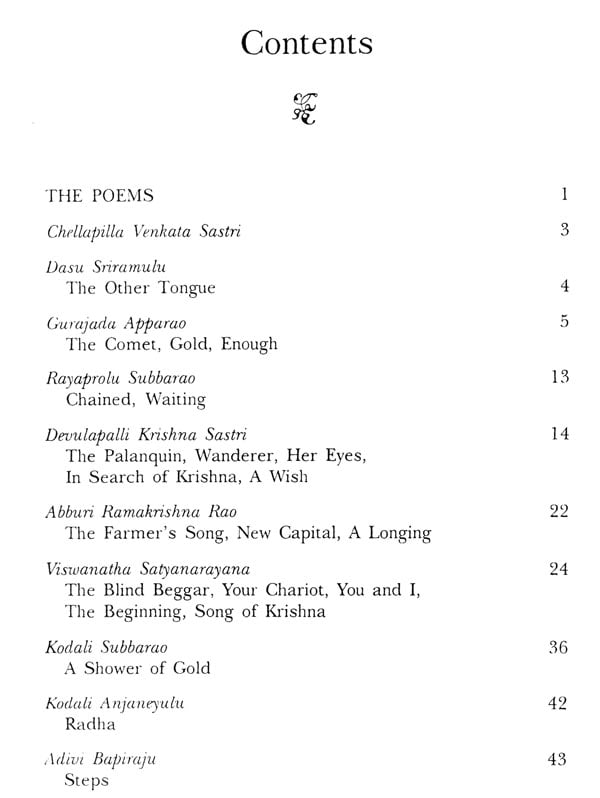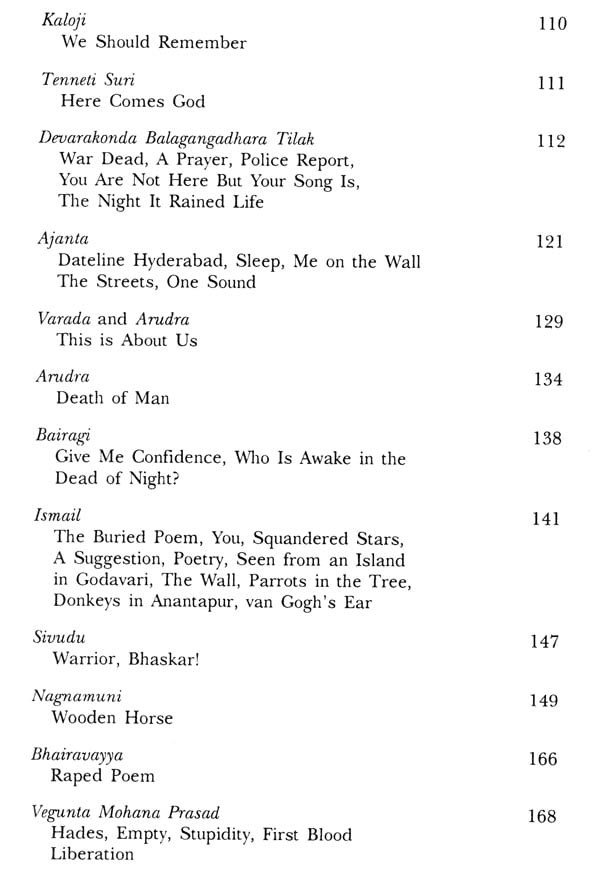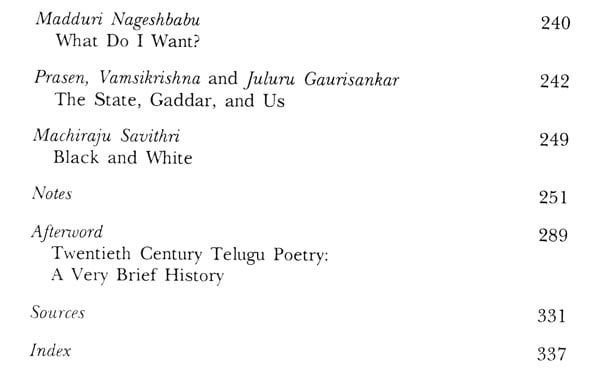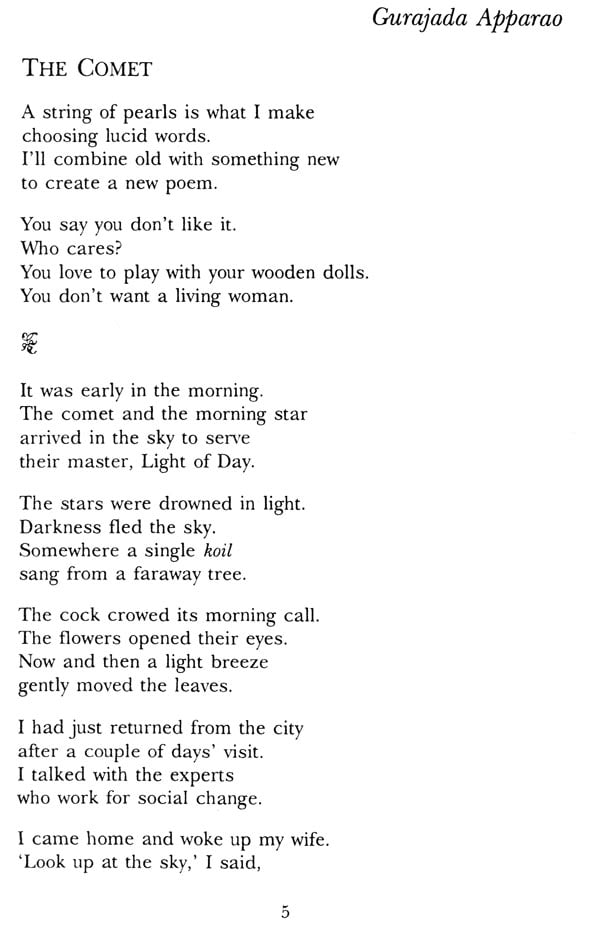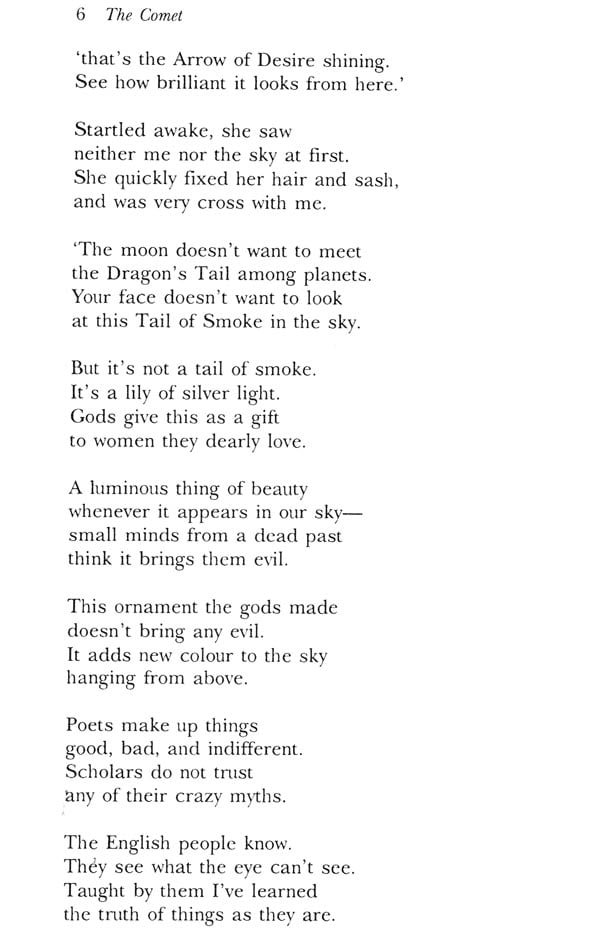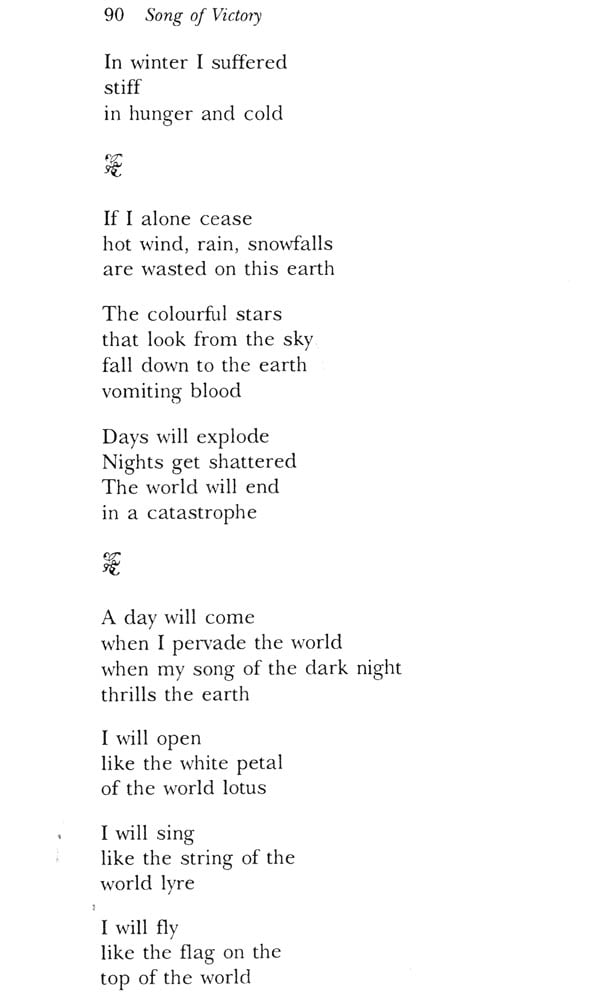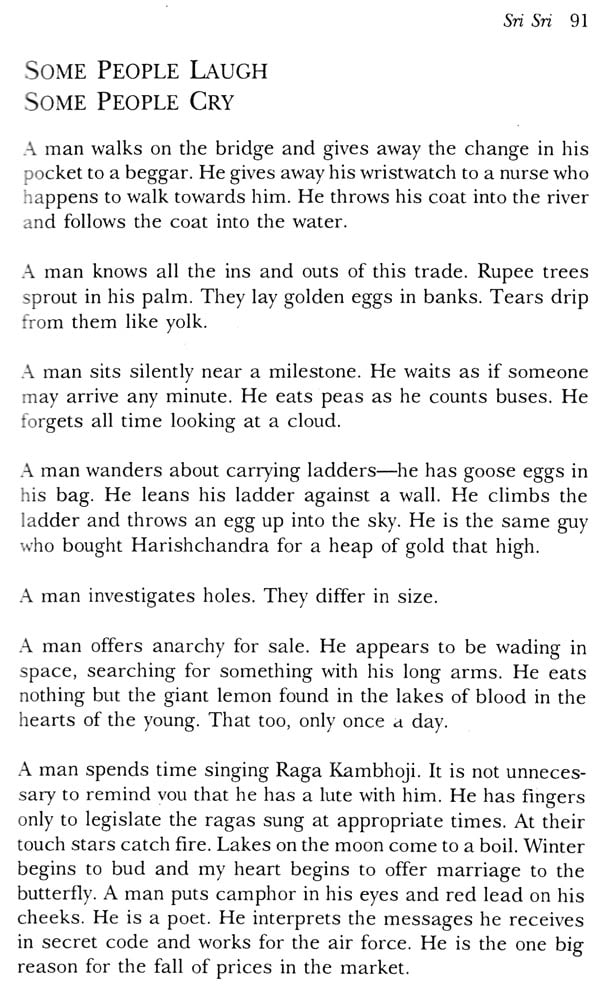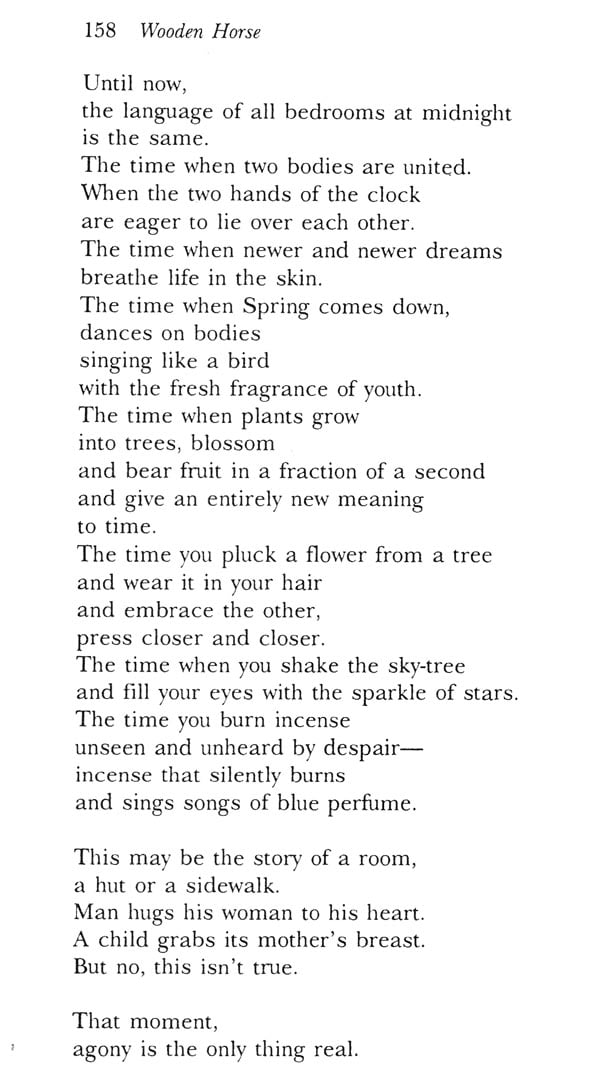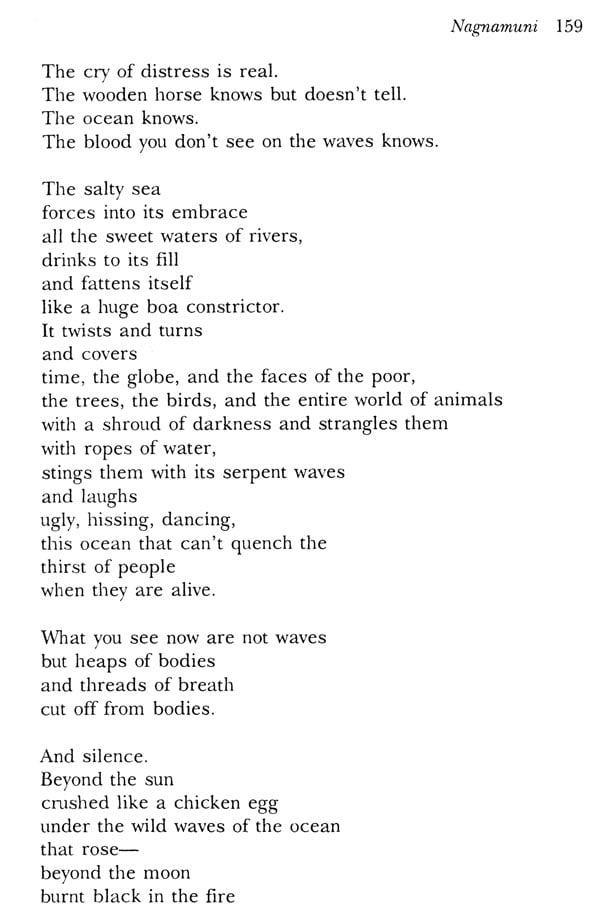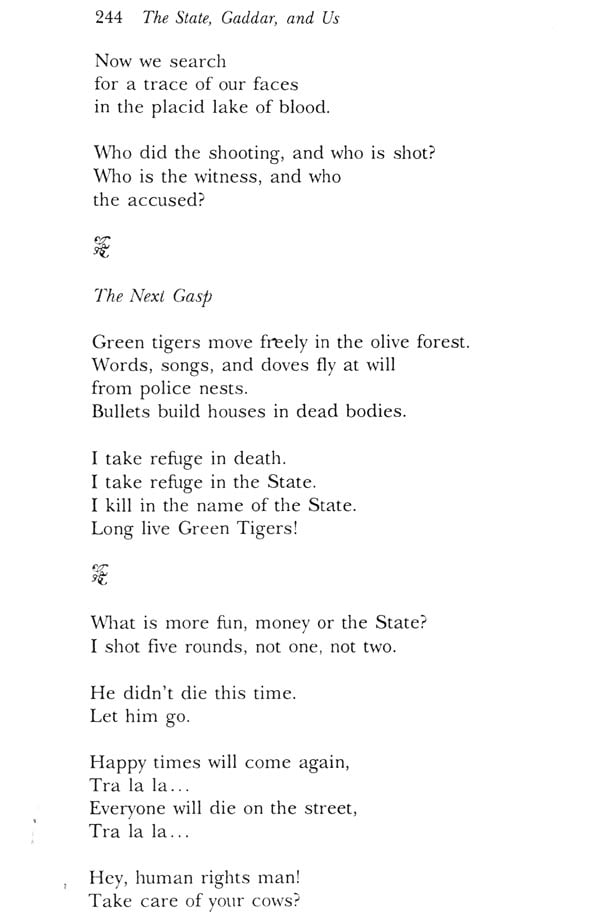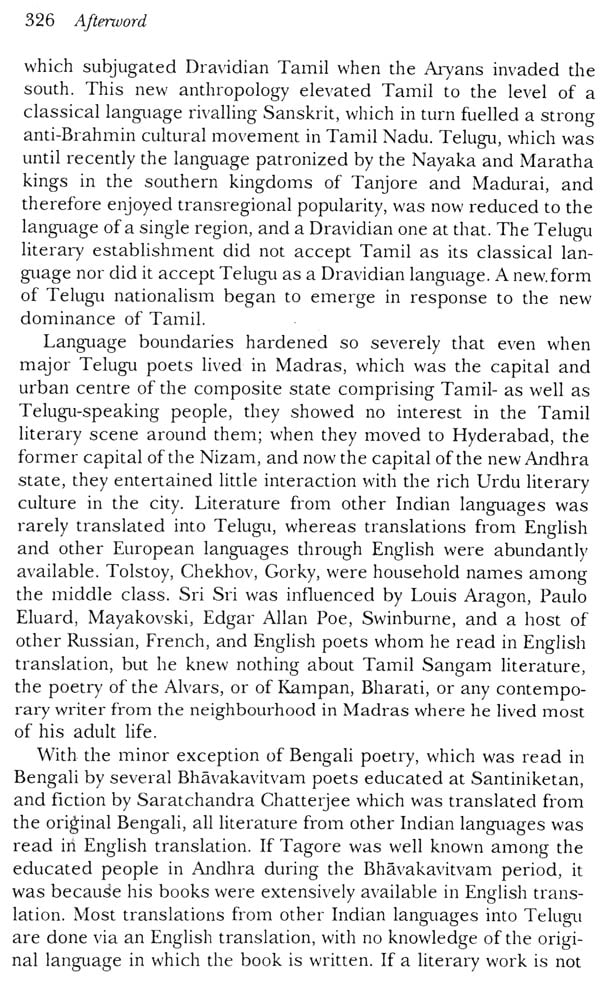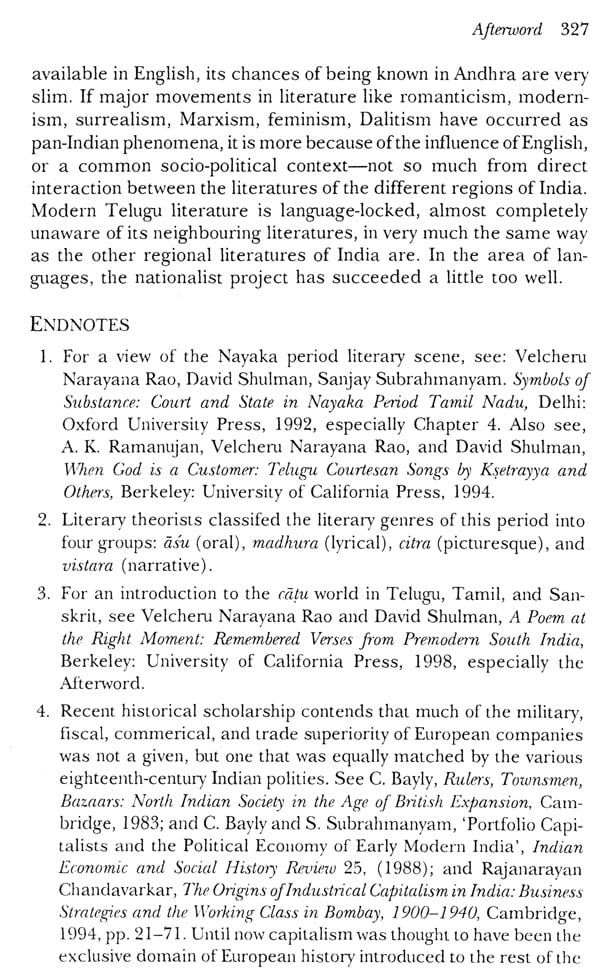
Twentieth Century Telugu Poetry (An Anthology)
Book Specification
| Item Code: | NAU436 |
| Author: | Velcheru Narayana Rao |
| Publisher: | Oxford University Press |
| Language: | English |
| Edition: | 2004 |
| ISBN: | 9780195670196 |
| Pages: | 346 |
| Cover: | PAPERBACK |
| Other Details | 8.50 X 5.50 inch |
| Weight | 320 gm |
Book Description
Velcheru Narayana Rao, Krishnadevaraya Professor of Languages and cultures of Asia at the University of Wisconsin-Madison, has a Lifelong and intimate connection to contemporary Telugu literary movements.
Every time I have written anything about Telugu for a non-Telugu audience I have begun by saying Telugu is the second most widely spoken language in India, spoken by about 70 million people in the southern state of Andhra Pradesh. I hope this anthology will not need such an explanatory note. Poetry stands in its own right; it does not depend on geographic and demographic support for attention. However, poetry is made of words and words are located in language.
It is, therefore, necessary to say that Telugu is a south Indian language with a vocabulary derived from Dravidian as well as Sanskrit sources and it has almost a thousand years of un-interrupted literary tradition. It is a highly musical language, and all poetry in it was written in metre until the later half of the twentieth century when free verse became popular. A hundred years is a significant period in the history of any literature, even if the literature has been in existence for almost a thousand years before. The last hundred years in Telugu literature have been especially revolutionary since they witnessed events of extraordinary significance in the political and cultural history of Andhra. For one thing, Telugu came into powerful contact with English under British colonial rule. Had it not been for the cataclysmic changes that took place in the cultural life of the country, the turn of the twentieth century in Telugu literature would have been a less eventful continuation of the new literary modes that began two centuries before.
Depending on your particular world-view, these changes were either disruptions of a rich and stable creativity or an awakening from a stagnant and dead state. In any case, the events at the turn of the century profoundly influenced every corner of Telugu life. This anthology will present a view of the poetry that came out of such changes and the diverse literary practices that flourished during the century. However, I did not intend the anthology to cover literary ideo-logies and movements. It is not a record of literary history with individual poets and their poems to illustrate literary periods and their contours. Such an enterprise would be interesting in itself, but I aimed, rather, to select the best poems from the century, no matter what the ideological persuasions of their authors. I present a brief survey of the century's literary history as an Afterword. If this anthology shows anything, it shows that literary value is entirely independent of any conscious purpose and is not con-trolled by, or pigeonholed into ideas, arguments and political practices. Poetry seeks its own argument and literary practice finds its own world, while at the same time it is deeply influenced by the political, social and ideological contexts that surround it. During the last several decades, a heavy and overpowering belief has emerged in the Telugu literary world that poetry has to be involved in delivering a social message and should serve as a weapon in the battle for one goal or the other.
Poets invariably see themselves as modernists rebelling against Brahminic traditions, Marxists fighting against the capitalists, militant revolutionaries battling feudal powers, feminists speaking against a male-dominated society, low-caste Dalits struggling against the upper castes, minority Muslim poets standing up for their identity and so on. Somewhere in between, there are also pure poets imagining freedom from all contexts and postmodernists uninterested in communicating anything to anyone. The recent history of literature in Andhra reads like a series of polemics. Nearly every book, or essay on literature, or book review pronounces a value judgement on poets based on their political opinions or social statements. Poems are evaluated for their social posturing rather than their literary quality. This is, in fact, a healthy feature of Telugu society. Here, poetry is taken seriously; it is not just analysed or torn to pieces to make a critical point. Nor is poetry the specialized field of professional poets and critics. It is memorized, recited, and quoted in conversations. People argue about poems and the status of poets. If a public issue comes up, it is the poet who expresses what people think and feel about it. Newspapers carry poetry and poets stand at the forefront of social or political action. To be called a poet is an honour in society, and poets are awarded, by popular acclaim, honorific titles such as mahakavi, great poet, and kavisamrat, king of poets.
To claim a poet from their own community is the preferred means for a social group to gain upward mobility. To receive the dedication of a book of poems is an honour celebrated in public, and the release of a new book of poems is a newsworthy item. For centuries Telugu poetry has been closely textured by orality. Poems are read aloud, sung, and performed. The centrality of sound has carried through despite the general rejection of metre in favour of free verse in the late fifties. Even the printed poem, written in free verse, for the individual reader to read in the privacy of his/her home, continues to retain its sound value. Successful poets have always realized the complexities of sound as a means of evoking meanings beyond lexical limits. These very features that have given health and strength to the social role of poetry in Telugu have also, not infrequently, interfered with the quality of a poem.
When the dividing line between social activism and literary creativity is blurred under the overpowering influence of contemporary political and social movements, discussed in some detail in the Afterword, literary institutions lose their identities and merge with political parties. In the process of serving its role as public voice, poetry has, sometimes, lost its literary role. Even good poets have written bad poems just to make a public point, not to mention non-poets who have taken to poetry because it is the preferred mode of public expression. However, it is a testament to the enduring taste of the reading public and to the quiet creative genius of poets that good poetry continues to be written in every conceivable context, with or without political/social/communal activist orientations.
Good poems re-ceive recognition irrespective of what the poet stood for or did not stand for, and what awards he/she got or did not get. From the distance of elapsed time, it is easier to see what has lasted and what has not. It is my good fortune to have been closely associated with the literary scene in Telugu for the past half a century and to personally know most of the poets included in this anthology, some more closely than others. My deep involvement in all the major events of Telugu literature over such a long period has given me a rich sense of the pulse of Telugu poetry, but it might have also given me my biases. In literature, as in life, taste is never neutral. I hope that the anthology will reflect the collective judgment of several generations, which has educated my taste, and that it will be received well by readers who enjoy poetry. A number of my Telugu friends will be disappointed that poems they cherish, and poets they consider important, are not included.
I hope they will appreciate the anthology for what is here rather than reject it for what is not here. With all the poets covering the entire century, this is still an incomplete anthology. There are more poems to be translated and more poets to be included. A translator's work is never finished. Now a word about translation. I confess there is a love affair between me and the poems I translated. If I did not love a poem, I did not translate it. If I did not feel that the poem translated well, I did not include it here. To borrow the words of American poet Charles Simic: 'Translation is an actor's medium. If I cannot make myself believe that I'm writing the poem that I'm translating, no degree of aesthetic admiration for the work can help me.... In a successful translation, one indeed does, at times, become the Other.'
`Languages are jealous sovereigns,' said Rabindranath Tagore, `and passports are rarely allowed for travellers to cross their strictly guarded boundaries.' Poetry is blessed by its location in the specific. It is inevitably created in a specific time, place, community, mind, dialect, and language. But it acquires a new life when it crosses its boundaries. The farther it moves, the longer it lives. Poetry is timeless and boundless, because it is temporal and local.
**Contents and Sample Pages**
